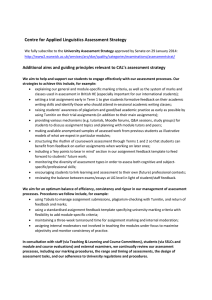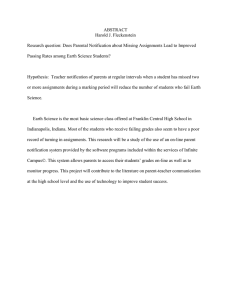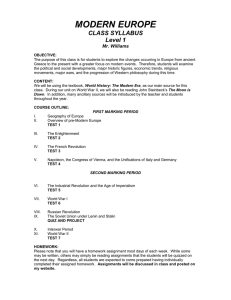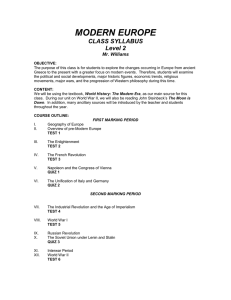Madison High School Course Expectation Sheet AP Modern European History
advertisement
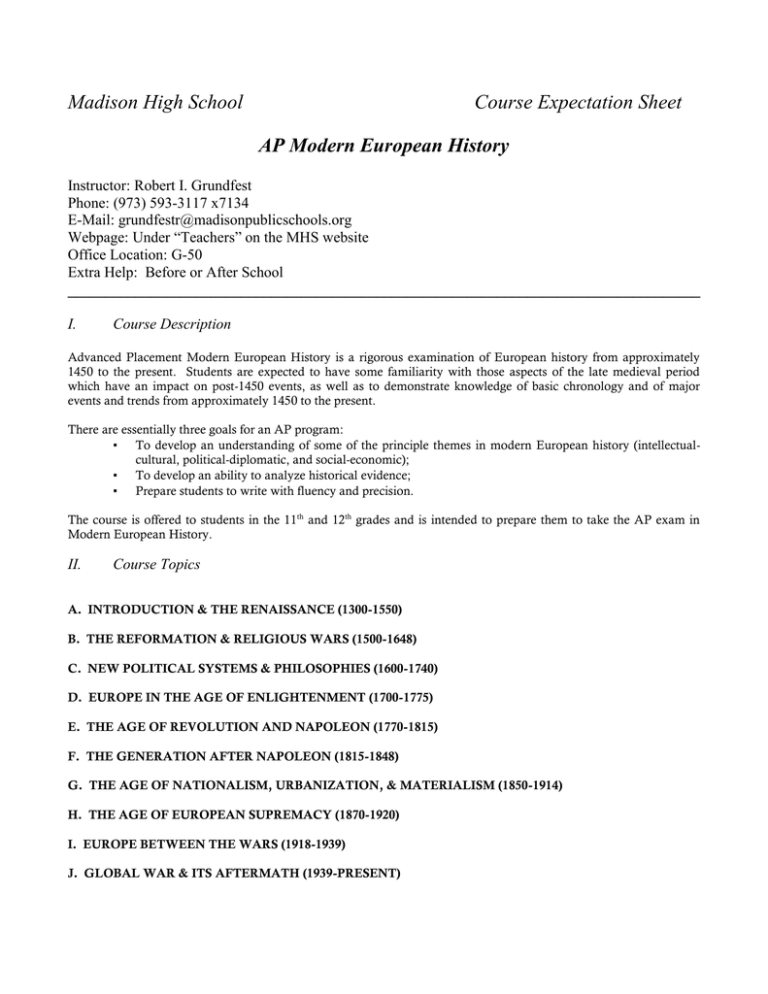
Madison High School Course Expectation Sheet AP Modern European History Instructor: Robert I. Grundfest Phone: (973) 593-3117 x7134 E-Mail: grundfestr@madisonpublicschools.org Webpage: Under “Teachers” on the MHS website Office Location: G-50 Extra Help: Before or After School ____________________________________________________________________________________ I. Course Description Advanced Placement Modern European History is a rigorous examination of European history from approximately 1450 to the present. Students are expected to have some familiarity with those aspects of the late medieval period which have an impact on post-1450 events, as well as to demonstrate knowledge of basic chronology and of major events and trends from approximately 1450 to the present. There are essentially three goals for an AP program: ▪ To develop an understanding of some of the principle themes in modern European history (intellectualcultural, political-diplomatic, and social-economic); ▪ To develop an ability to analyze historical evidence; ▪ Prepare students to write with fluency and precision. The course is offered to students in the 11th and 12th grades and is intended to prepare them to take the AP exam in Modern European History. II. Course Topics A. INTRODUCTION & THE RENAISSANCE (1300-1550) B. THE REFORMATION & RELIGIOUS WARS (1500-1648) C. NEW POLITICAL SYSTEMS & PHILOSOPHIES (1600-1740) D. EUROPE IN THE AGE OF ENLIGHTENMENT (1700-1775) E. THE AGE OF REVOLUTION AND NAPOLEON (1770-1815) F. THE GENERATION AFTER NAPOLEON (1815-1848) G. THE AGE OF NATIONALISM, URBANIZATION, & MATERIALISM (1850-1914) H. THE AGE OF EUROPEAN SUPREMACY (1870-1920) I. EUROPE BETWEEN THE WARS (1918-1939) J. GLOBAL WAR & ITS AFTERMATH (1939-PRESENT) III. Required Text & Materials (Required) Palmer, Colton and Kramer. A History of the Modern World, McGraw Hill. New York, 2002 Kagan, Ozment and Turner, The Western Heritage, Prentice-Hall, New Jersey, 2001 Supplemental text: Sherman, Dennis, Ed., Western Civilization—Sources, Images and Interpretations, McGraw-Hill, New York, 2004. IV. Classroom Expectations Please see my website V. Grading Policy Grades for each marking period are based on a points system. Each assignment will have a point value from 10 to 100. At the end of each marking period, I will divide the total points you have achieved by the maximum points available. For example, if you earned 838 out of 1000 possible points, your grade will be 83.8%, or 84--B. Grades are based on the following criteria: Tests/Quizzes Homework assignments Projects Free Response Questions Document Based Questions (DBQ) Class participation--this includes class discussions, activities, behavior, and preparation for class. Absences will also affect this grade. The yearly grade is based upon your performance in marking periods 1-4 plus the midterm exam. VI. Late Work & Make-up Policy All assignments are due on time. I do not accept late work. The school absence policy is in effect if a student is absent. For long-term absences, the student should see me for a make up schedule. VII. Class Participation Students are expected to have their materials every day and to participate in class. VIII. Major Assignments There will be marking period projects. I will post the assignments on my website IX. Teacher Availability I am available before and after school.
